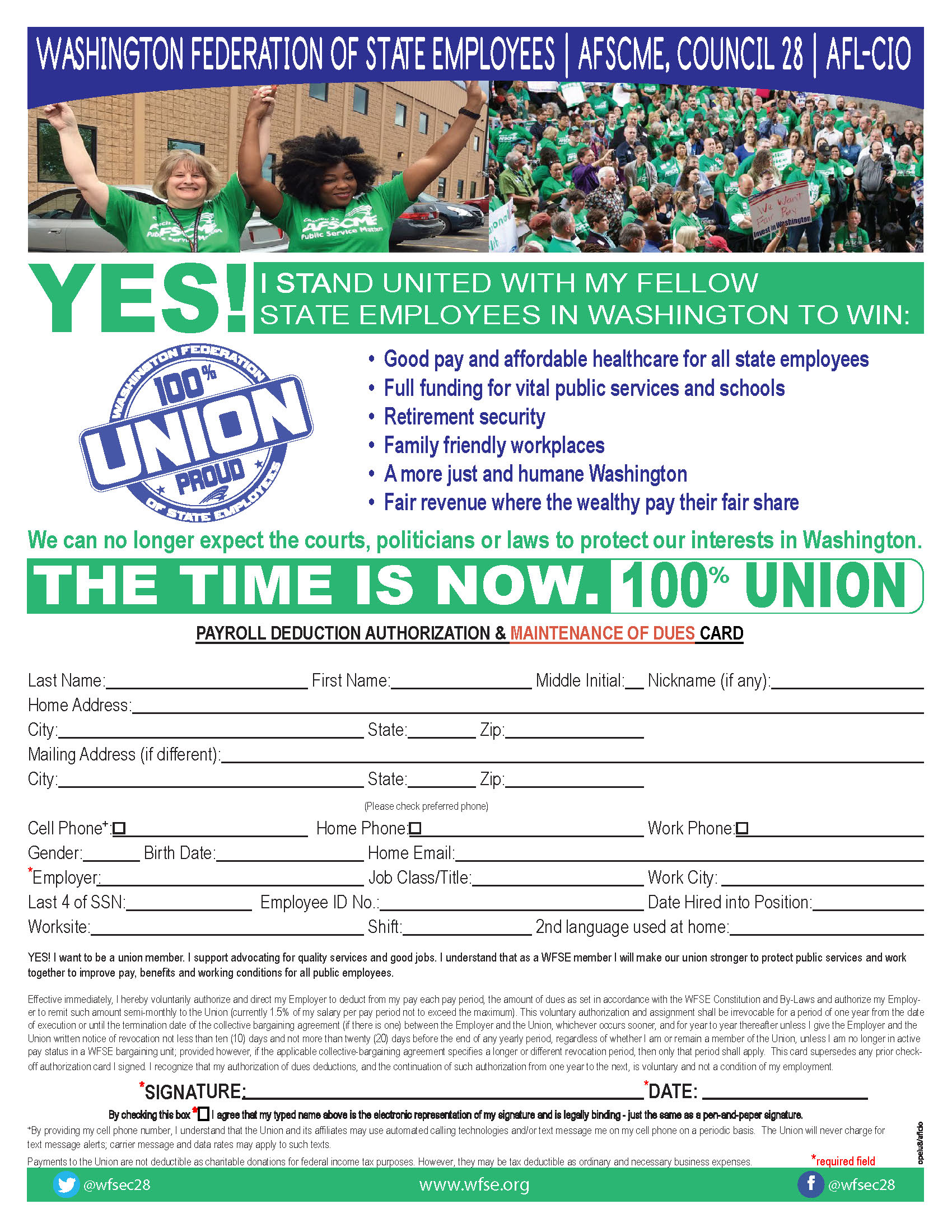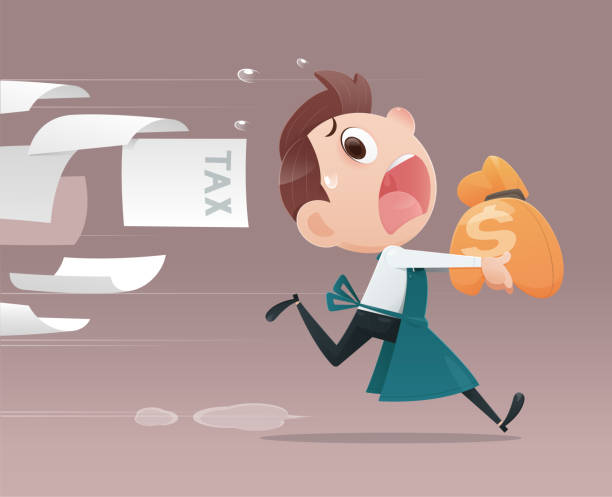As the Governor sits behind closed doors negotiating state worker contracts with the government unions that helped elect him, all we know so far is what the Washington Federation of State Employees (WFSE) has decided to share.
In Washington, collective bargaining negotiations for public employees are not open to the public—they are done in secret. There is no access at all to what is being negotiated for the taxpayers who will ultimately foot the bill. Even the public employees on whose behalf the negotiations are taking place are in the dark. So too are lawmakers and the media.
At this point, the only thing WFSE has decided to share is that they have “resolved some articles but challenges lie ahead.” The union’s Bargaining Update says those challenges center around convincing the state “about members Work/Life Balance issues.”
At the end of the Bargaining Update, WFSE includes this:
P.S. If you haven’t already done so already, please sign a 100% Union card so that we can be Stronger Together for a fair contract. By signing you are sending a clear message to the State that we are committed to each other and Stronger Together.
A handy click link to the card is included for workers’ convenience.
The card is full of eye-catching graphics trumpeting support for union solidarity—100% Union Proud, Union Membership Equals Fair Pay, I Stand United Because We Are Stronger Together. What is less eye-catching is the fine print at the bottom that explains what workers are really signing.
A state worker’s signature locks them into paying WFSE for at least one year (and forever unless they jump through hoops to opt-out), even if the U.S. Supreme Court rules in favor of worker choice in the pending Janus v. AFSCME case. The Court’s decision is expected by the end of this month, and most everyone, including labor executives, agrees the Court is likely to grant all public employees the right to reject paying a government union for representation they do not want, thus ending the forced unionization that has been the law for decades.
“THIS VOLUNTARY AUTHORIZATION AND ASSIGNMENT SHALL BE IRREVOCABLE FOR A PERIOD OF ONE YEAR FROM THE DATE OF EXECUTION OR UNTIL THE TERMINATION DATE OF THE COLLECTIVE BARGAINING AGREEMENT (IF THERE IS ONE) BETWEEN THE EMPLOYER AND THE UNION, WHICHEVER OCCURS SOONER, AND FOR YEAR TO YEAR THEREAFTER UNLESS I GIVE THE EMPLOYER AND THE UNION WRITTEN NOTICE OF REVOCATION NOT LESS THAN TEN (10) DAYS AND NOT MORE THAN TWENTY (20) DAYS BEFORE THE END OF ANY YEARLY PERIOD, REGARDLESS OF WHETHER I AM OR REMAIN A MEMBER OF THE UNION, UNLESS I AM NO LONGER IN ACTIVE PAY STATUS IN A WFSE BARGAINING UNIT; PROVIDED HOWEVER, IF THE APPLICABLE COLLECTIVE-BARGAINING AGREEMENT SPECIFIES A LONGER OR DIFFERENT REVOCATION PERIOD (emphasis added), THEN ONLY THAT PERIOD SHALL APPLY. THIS CARD SUPERSEDES ANY PRIOR CHECKOFF AUTHORIZATION CARD I SIGNED. I RECOGNIZE THAT MY AUTHORIZATION OF DUES DEDUCTIONS, AND THE CONTINUATION OF SUCH AUTHORIZATION FROM ONE YEAR TO THE NEXT, IS VOLUNTARY AND NOT A CONDITION OF MY EMPLOYMENT
So while WFSE tries to sell state workers that “by signing you are sending a clear message to the State that we are committed to each other and Stronger Together,” the reality is that by signing, a worker is forfeiting any potential Janus rights by committing to have a portion of their paycheck sent to the union into perpetuity, unless and until the worker takes the proactive step to affirmatively opt-out each and every year (in writing to both the employer and the union), the option for which is a very limited window of time.
It’s no secret the card is designed to lock state workers into paying WFSE despite a Janus ruling giving workers the right to quit paying a government union. They admitted as much last year, as pointed out by the Freedom Foundation, WFSE’s website noted that, to avoid losing members after Janus, the union intends to “sign up members on the new 100% Union card.”
A U.S. Supreme Court Janus ruling giving workers the constitutional right to choose to not pay a government union like WFSE won’t mean much to those who unknowingly forfeited that right because they didn’t read, or fully understand, the legalese in the fine print.
Also noteworthy in the fine print is the statement that while the worker is locked into paying the union unless they send their written notice of revocation “less than ten (10) days and not more than twenty (20) days before the end of any yearly period,” that revocation period could change if “the applicable collective-bargaining agreement specifics a longer or different period.”
One might read the latter to be a clause designed to respond to a Janus ruling by enshrining in collective bargaining agreeements the limited opt-out windows. In that scenario, public workers would have aboslutely no choice since a Court decision in favor in Janus would still force every worker to be represented by the union and covered by the collective bargaining agreements they negotiate. The ruling would simply give workers the right to refuse to pay the union for that representation they do not want. So if the collective bargaining agreement restricted those opportunities to opt-out of paying the union, every worker would be bound by those restrictions. The union wouldn't even have to bother trying to trick them into signing their rights away.
This concerning provision begs two important questions about the secret WFSE collective bargaining negotiations currently underway. What exactly is the union asking for behind closed doors? And more important, what is the Governor agreeing to give them?
In true Pelosi “we have to pass the bill so that you can find out what's in it,” style, we won’t know what is in the collective bargaining agreement until an agreement has been reached. And we won’t know what the union asked for, and didn’t receive, until months after that.






